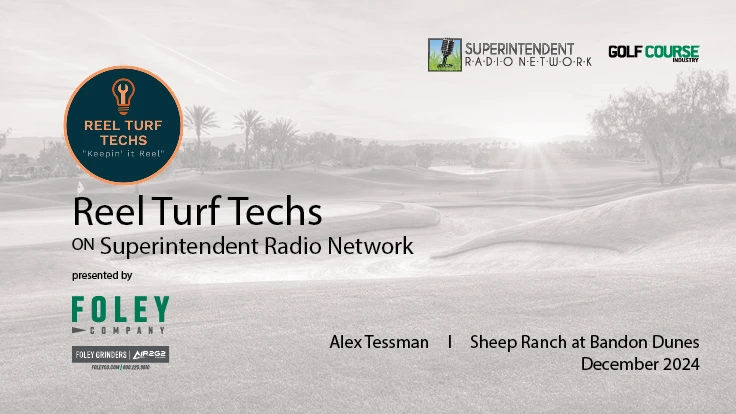 Tim Moraghan Tim Moraghan |
I received this letter in response to my September column, “What’s in a Name?” I’ve edited it to protect the innocent and the guilty. I just finished reading your article and was happy someone finally touched on the subject of inflated resumes. There is a ripple effect to applicants exaggerating their titles and jobs descriptions when applying for a superintendent position. It not only is misleading to the searching clubs, but it also puts less value on Superintendents that earned it the hard way (like me). I have applied for every good job that has been open since 2009 and came close many times. It seems to be the same thing over and over. I make it to the finals and start asking around about the other finalists. When I hear I am up against “The Superintendent from Big-Name Golf Club,” I can’t believe this well-known guy wants the position, only to find out that it is not him but rather one of his assistants that manages the ladies’ driving range tee. This assistant obviously has on his resume that he is “The Superintendent of Big-Name Golf Club,” the hiring clubs believe it, and more often than not they hire the logo. Sometimes even the GCSAA makes them look better than they really are. Looking through my GCSAA directory I see Fancy Pants Country Club with three class “A” superintendents and two class “C.” I know for a fact that these class A’s have beat me out of at least one great job. I’m a class “A” but can’t possibly compete with a class “A” from those U.S. Open-type courses when the decisions are made on who to offer jobs to. It looks like we are on the same level when we are not. The jobs go to the better club. The GCSAA allows the non-superintendents who work for three years at a club and are the superintendent of something (driving range, tennis courts, ladies par 3 course) to become a class “A.” This is misleading on a resume. It’s a shame, but a fact, that if I managed Big-Name’s driving range for one summer and put on my resume that I was “Superintendent,” there, I would land a job 100 times faster than being the Class “A” Superintendent where I’ve been for 12 years. The GCSAA needs to add an extra category for those “Superintendents” at clubs where they are not in charge of the operation but have the title. Possibly “junior superintendent.” Thanks for bringing up the subject. While I doubt it will make anyone actually adjust his or her resumes, at least it will inflict a little guilt. It’s both heartening and depressing to learn how right I was. Hearing from someone I know and whose work I respect, forces me to repeat my assertion that the system is flawed and our industry should take a hard look at our designations, ratings and titles, as well as what it does to help its own move up the ladder. We are so concerned about sustaining the game, keeping courses in presentable shape and hanging onto our jobs that we don’t step back and think how our industry’s standards and practices look to those who have to make decisions based on them. But it isn’t only an internal problem. Cachet, or “name,” clubs bamboozle members, recruiters and GMs with these inflated, erroneous titles. People want to rub shoulders with and have bragging rights to hiring someone previously associated with a top-name club – whether these potential hires have the authority and responsibility they claim. Committees, in my experience, often don’t have the guts to go with the most-qualified, dedicated, hard-working turfgrass producers. They know who the best potential new hires are, but it’s hard to justify a lengthy search and then present a slate of candidates coming from second-level clubs. Right or wrong, this is the reality. I’m not saying we shouldn’t consider pedigree, but those people doing the hiring have to look beyond the name and focus on course condition, work ethic and overall demeanor. These are more important than a name on a resume. I know superintendents and assistants with excellent references and proven track records who work at what some perceive as “next-level” clubs. I do everything I can to push these quality, qualified individuals who produce great results yet aren’t getting a sniff when better jobs open up. This is the unfortunate norm in our business. And as much as I try to make the case for open-mindedness to the committees I consult with, a name is a name is a name. Unfortunately, the GCSAA doesn’t have a “minor league.” Instead, we face the unfortunate prejudice that someone from one of those top clubs is automatically well trained, well educated and qualified to move up. Very often, that’s a big leap, and one taken without careful research by those doing the hiring. We have to change this prejudice. I’m not sure how, but everyone, especially the GCSAA, needs to give this careful and considerate thought. With course numbers on the decline and more qualified candidates than jobs, how can we level the playing field? This is an important issue, not only for the clubs that are hiring, but for the credibility of our industry and our futures, individually and collectively. We all need to get smart, get serious and get ahead of this situation before it drives good people away.
Tim Moraghan, principal, ASPIRE Golf (tmoraghan@aspire-golf.com). Follow Tim’s blog, Golf Course Confidential at http://www.aspire-golf.com/buzz.html or on Twitter @TimMoraghan |

Explore the November 2014 Issue
Check out more from this issue and find your next story to read.
Latest from Golf Course Industry
- Golf Construction Conversations: Reed Anderson
- ’Twas the Night Before Christmas (on turf)
- Twas the Night Before Christmas (the turf version audio)
- Advanced Turf Solutions and The Aquatrols Company release soil surfactant
- Heritage Golf Group acquires North Carolina courses
- Editor’s notebook: Green Start Academy 2024
- USGA focuses on inclusion, sustainability in 2024
- Greens with Envy 65: Carolina on our mind





